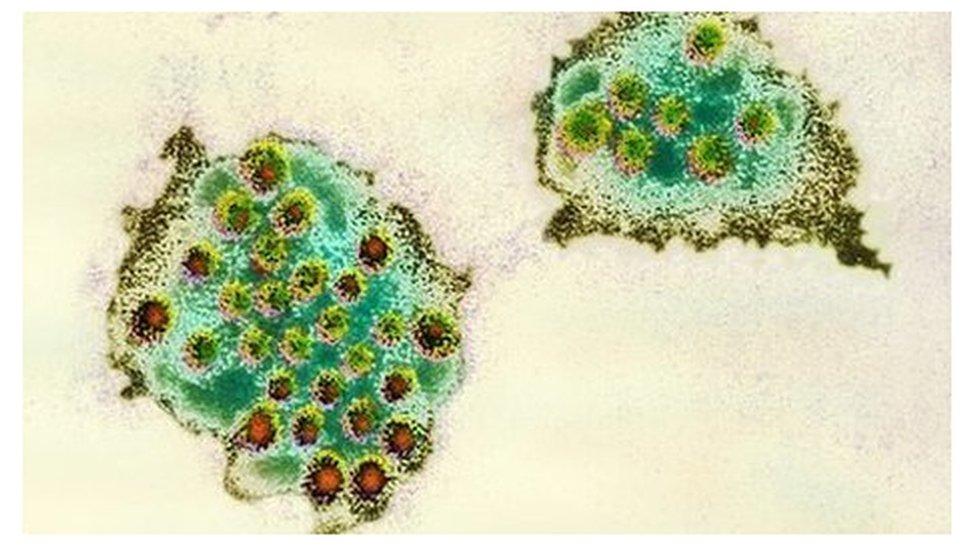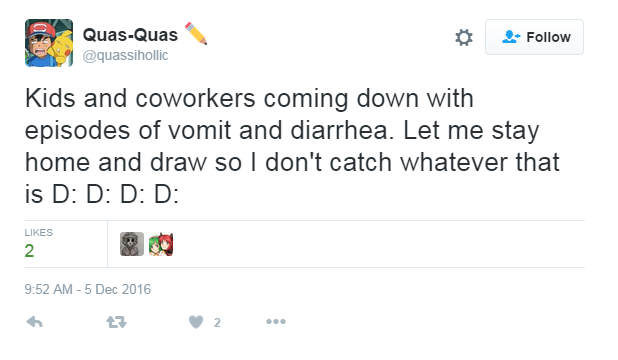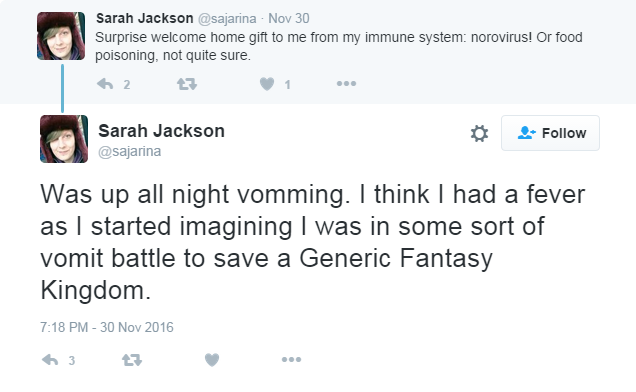Tweet when you vomit: It's your duty
- Published

If you're suffering with projectile vomiting and watery diarrhoea, reach for your phone and post an update.
No really - while it won't ease your pain, a tweet or two could help researchers track the spread of the winter vomiting bug.
The UK Food Standards Agency has been using social media to track levels of norovirus, a highly contagious illness which spreads via food and through person-to-person contact. The symptoms usually last for one to two days, with the person remaining infectious for a further two days.
If you've ever had it, you know what it means: vomiting, diarrhoea, pain, and the general feeling of having been run over by a car.

Listen to More or Less
Hear this story and others from the world of numbers and statistics from the BBC World Service.

In 2013, the Foods Standards Agency started looking at new ways to track the virus. They analysed Google searches but found that social media was a better source of data. "It's more about the immediacy… what's happening in their lives right now," says Dr Sian Thomas.
On the other hand, "if you're in hospital or a nursing home and you're sick, then they might take a sample and send it to a laboratory for analysis," she says.
The FSA compared this official sample data with the volume of relevant tweets and concluded that "there's a really good correlation between the number of mentions on Twitter of 'sick' and a range of search terms, with the incidents of illness as defined by laboratory reports."
"Our current estimate is that between 70-80% of the time, we are able to accurately predict an increase the next week."

Follow BBC Trending on Facebook
Join the conversation on this and other stories here, external.

The model searches for Tweets containing words and phrases relating to norovirus symptoms. "There's a whole range of things", says Dr Thomas. "It's mostly about the impact that being sick has on other things that are going on around them."



Researchers exclude tweets which include references to pregnancy, anxiety, and alcohol. According to Dr Thomas, the task of filtering "gets more tricky towards Christmas."


By tracking the volume of symptom-related tweets, the Food Standards Agency can try to intervene before a national outbreak.
"In order to have the biggest impact, it's better to roll out that intervention when the numbers of cases of norovirus are going up… when we've got three consecutive weeks of a predicted increase," says Dr Thomas.
If the team predict a national outbreak, they plan to run a digital campaign explaining how to look after yourself.
"The intervention is really quite basic," she notes. "It's about washing your hands, it's about looking after yourself, and not coming in to contact with other people while you're sick."
Norovirus can be dangerous for children or the elderly. Fortunately for healthy adults though, the illness is usually a minor, if messy, inconvenience.
Blog by Elizabeth Cassin, More or Less, BBC World Service
Next story: Home for Christmas thanks to a stranger's air miles

Dreams of spending Christmas at home with family will come true for at least ten people who'd thought they were going to be spending the festive season apart, all thanks to a businessman's enterprising scheme.READ MORE
You can follow BBC Trending on Twitter @BBCtrending, external, and find us on Facebook, external. All our stories are at bbc.com/trending.
- Published9 December 2016
